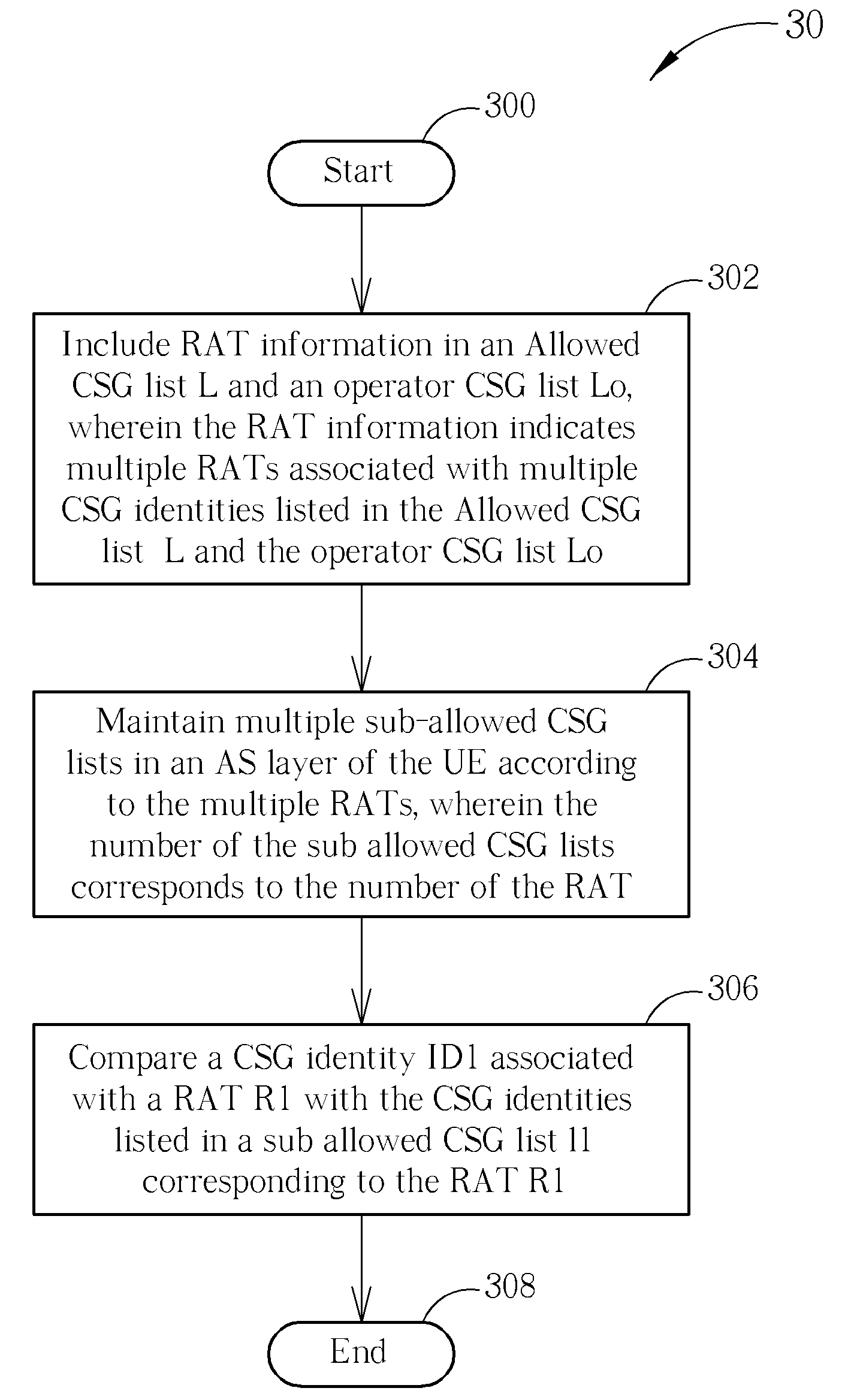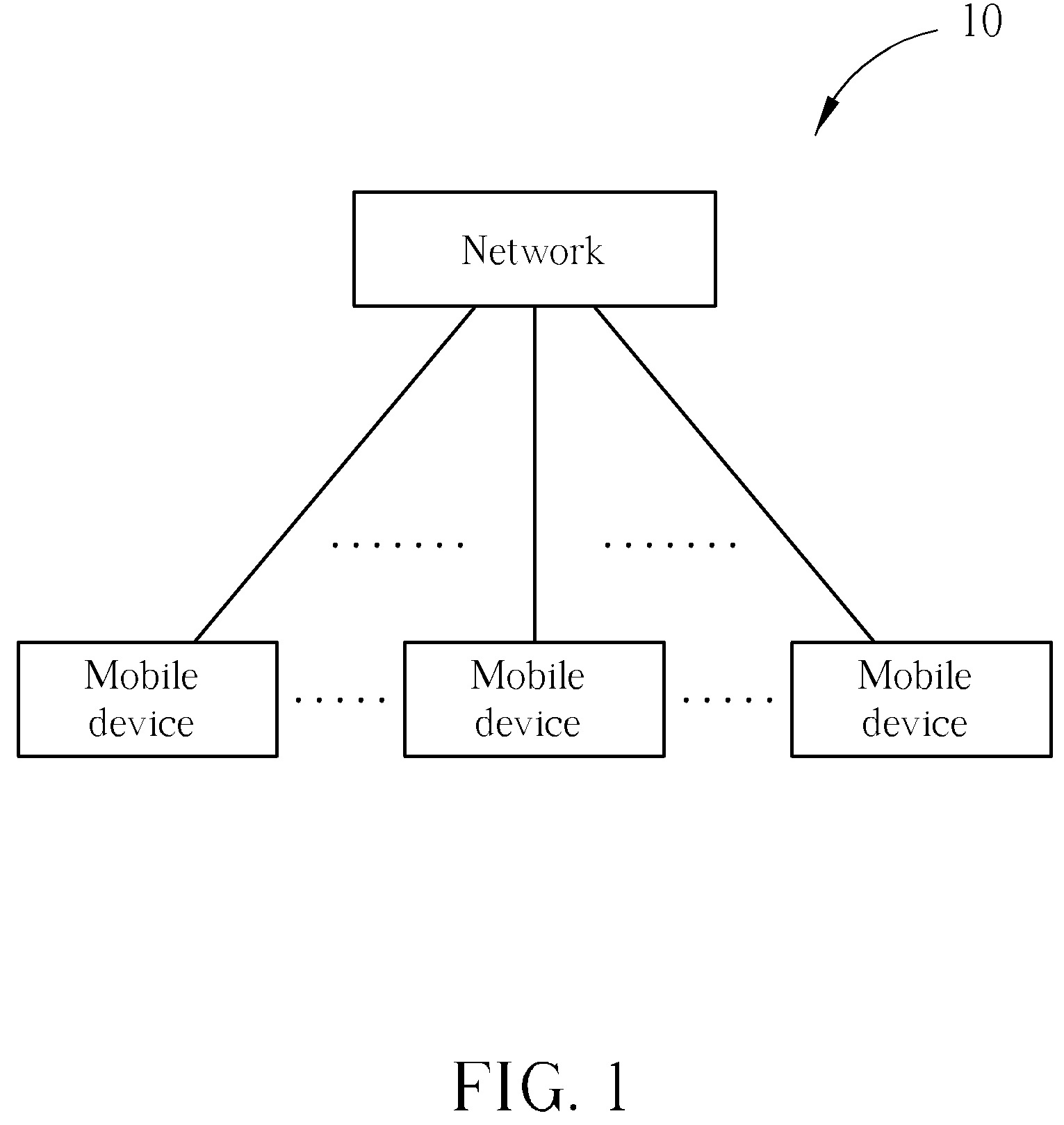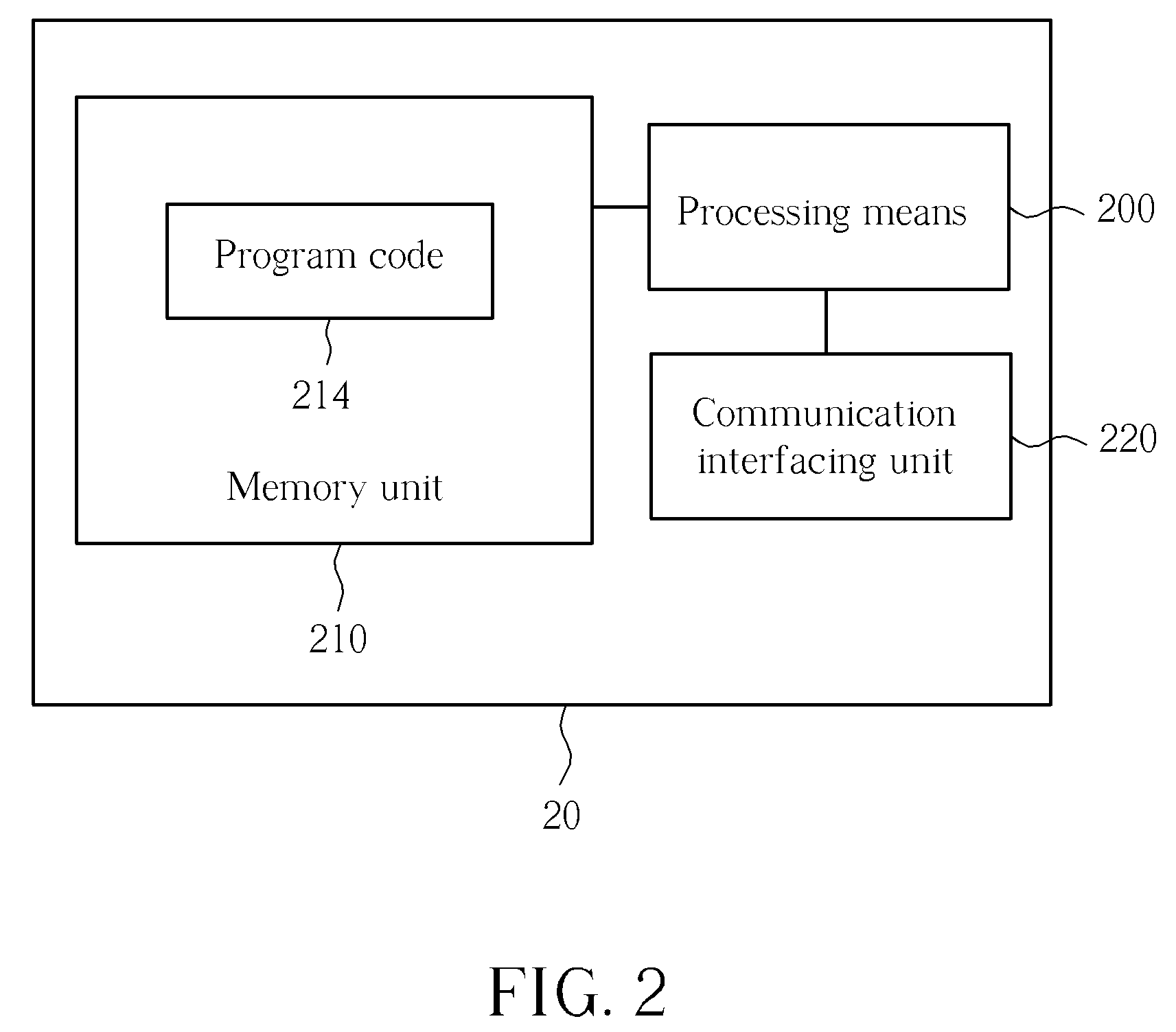Method for reducing closed subscriber group identity comparison
a closed subscriber group and identity comparison technology, applied in the field of wireless communication systems, can solve problems such as unnecessary comparison, affecting battery usage, handover delay or radio link failure, etc., and achieve the effect of reducing csg identity comparison and avoiding unnecessary csg identity comparison
- Summary
- Abstract
- Description
- Claims
- Application Information
AI Technical Summary
Benefits of technology
Problems solved by technology
Method used
Image
Examples
Embodiment Construction
[0018]Please refer to FIG. 1, which is a schematic diagram of an exemplary wireless communication system 10. The wireless communication system 10, such as a long-term evolution (LTE) system, Universal Mobile Telecommunications System (UMTS) or other mobile communication systems, is briefly composed of a network and a plurality of user equipments (UEs). In FIG. 1, the network and the UEs are simply utilized for illustrating the structure of the wireless communication system 10. Practically, the network of the LTE system comprises a plurality of base stations, such as an E-UTRAN (evolved-UTAN) comprising a plurality of evolved Node-Bs (eNBs). The network of the UMTS system comprises a plurality of base stations, such as an UTRAN comprising a plurality of Node-Bs (NBs). The UEs can be devices such as mobile phones, computer systems, etc. Besides, the network and the UE can be seen as a transmitter or receiver according to transmission direction, e.g., for uplink, the UE is the transmit...
PUM
 Login to View More
Login to View More Abstract
Description
Claims
Application Information
 Login to View More
Login to View More - R&D
- Intellectual Property
- Life Sciences
- Materials
- Tech Scout
- Unparalleled Data Quality
- Higher Quality Content
- 60% Fewer Hallucinations
Browse by: Latest US Patents, China's latest patents, Technical Efficacy Thesaurus, Application Domain, Technology Topic, Popular Technical Reports.
© 2025 PatSnap. All rights reserved.Legal|Privacy policy|Modern Slavery Act Transparency Statement|Sitemap|About US| Contact US: help@patsnap.com



